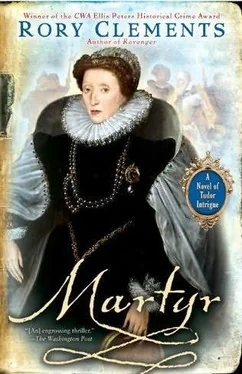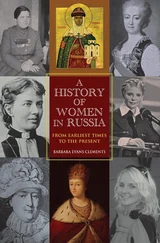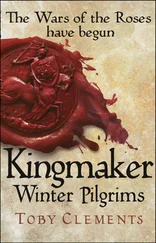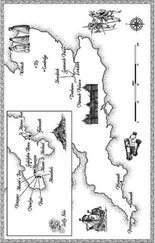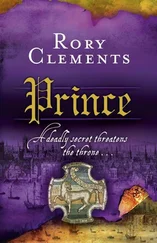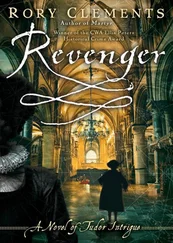Rory Clements - Martyr
Здесь есть возможность читать онлайн «Rory Clements - Martyr» весь текст электронной книги совершенно бесплатно (целиком полную версию без сокращений). В некоторых случаях можно слушать аудио, скачать через торрент в формате fb2 и присутствует краткое содержание. Жанр: Исторический детектив, на английском языке. Описание произведения, (предисловие) а так же отзывы посетителей доступны на портале библиотеки ЛибКат.
- Название:Martyr
- Автор:
- Жанр:
- Год:неизвестен
- ISBN:нет данных
- Рейтинг книги:3 / 5. Голосов: 1
-
Избранное:Добавить в избранное
- Отзывы:
-
Ваша оценка:
- 60
- 1
- 2
- 3
- 4
- 5
Martyr: краткое содержание, описание и аннотация
Предлагаем к чтению аннотацию, описание, краткое содержание или предисловие (зависит от того, что написал сам автор книги «Martyr»). Если вы не нашли необходимую информацию о книге — напишите в комментариях, мы постараемся отыскать её.
Martyr — читать онлайн бесплатно полную книгу (весь текст) целиком
Ниже представлен текст книги, разбитый по страницам. Система сохранения места последней прочитанной страницы, позволяет с удобством читать онлайн бесплатно книгу «Martyr», без необходимости каждый раз заново искать на чём Вы остановились. Поставьте закладку, и сможете в любой момент перейти на страницу, на которой закончили чтение.
Интервал:
Закладка:
Walsingham silenced him with an angry wave of his hand. Enough. I will hear no more concerning your feelings on the subject of Mr. Topcliffe. He signaled for Shakespeare to sit and his voice eased. There is more, John. I wish I had endless funds to hire an army of true Englishmen to fight this war of secrets, but these are straitened times and we must live within our means. You will continue your inquiries into the affair of Blanche Howard. I fear that far more is at stake here than the death of one woman. Discover her familiars. Had she turned Papist? Who has done this to her and why? What is the meaning of the text and who was behind it? Jesuits? Get Slide involved; use his network. He owes his neck to me and he’ll likely know who’s behind this. Find this Robert Southwell, too. He’s dangerous. Is he responsible for the death of Blanche Howard? I hear Topcliffe thinks so. It would not be the first time a Southwell helped do away with a Howard. Did not this Southwell’s father, Sir Richard, come forward as chief accuser against Henry Howard, the Earl of Surrey, and bring him to his death? There is no love between these families, John.
But this is different.
Is it? Let us find out, shall we? Within weeks, God willing, the Scots devil will lose her head and then we shall see a reaction. Then the powder will ignite. We must all be prepared. Every scrap of intelligence, every disloyal word in the ordinaries and inns of London and beyond, must be scrutinized. There must be no more attempts on the life of our sovereign Majesty.
Shakespeare felt his stomach knotting like cable around a capstan. At times it felt as if the whole future of Elizabeth and her subjects rested on his shoulders alone. How could he, one man, stand against the threat of the so-called Enterprise of England-Philip of Spain’s growing armada of ships now being assembled with the aim of invasion of England and destruction of the Queen?
The enemy was everywhere: London and the counties seemed to be awash with priests sent from the seminaries and colleges of Rome, Rheims, and Douai. Their aim? Sedition, insurrection, and the perversion of men’s souls. The common or garden priests were a poor lot. It was the Jesuits, disciplined and determined though few in number, who threatened the stability of the realm: the Devil’s army of the Counter-Reformation.
There is another matter, John, Walsingham continued, his voice quiet, as if the walls would hear him. The matter of Sir Francis Drake.
What of him?
Walsingham sipped sweet Rhenish from his small silver cup. His face was half in shadow in this weak wintry light. There was a fire in the hearth, a single small log glowing without enthusiasm; it did little to dispel the chill. He rose and fetched a paper from a pile near one of the tables, and handed it to Shakespeare, who saw instantly that it was encrypted in a Spanish code.
Berden waylaid that in Paris. It was on its way from Mendoza to the Spanish King.
Shakespeare was aware that any communication between Mendoza, the Spanish ambassador to Paris, and King Philip was of extreme importance. No one had done more to undermine Elizabeth and the English state than Don Bernardino de Mendoza; he had been expelled from England three years earlier for his endless conspiracies, and even as he left under armed guard, he turned to one of the Council and taunted him that he would return as a conqueror. As for Berden, Shakespeare knew of him as one of Walsingham’s top intelligencers in the field. There would be no reason to doubt the authenticity of this intercept.
I assume you have had it deciphered?
It is a subject close to your own heart, John. Phelippes has broken the code and finds this message: ‘The dragon slayer has been dispatched to England.’ It goes on to ask for funds of seventy thousand ducats to be made available in the event of a successful outcome. This note is a warrant for murder, John. It tells us an assassin has been sent to England to kill Drake. We have no way of knowing when he was sent, how long he has been here, or how far his plans are advanced. But there is no question as to the import of the message and the seriousness of the position.
Shakespeare nodded assent. He knew that Thomas Phelippes, Walsingham’s cipher expert, would not have made an error in discovering the meaning of such a paper. It was his breaking of the Queen of Scots’s intricate code that had convicted her of treason. And now, if this encoded message was to be believed, a killer had been contracted to murder Sir Francis Drake. All Spaniards feared Drake and called him El Draque, meaning Dragon. His title was Vice Admiral of England and yet his repute far exceeded mere titles. In a country of superb mariners-Walter Raleigh, Martin Frobisher, Thomas Cavendish, Humphrey Gilbert, Richard Grenville, John Hawkins, and Howard of Effingham-Drake was peerless. And he was driven by hatred of the Spanish. It was a loathing born of the cruelties meted out to his friends and comrades-at-arms long ago, in 1568, when they were taken by the Inquisition at the debacle of San Juan d’Ulua in the New World. The names of those men still gnawed at Drake’s soul, and he thought of them often: fellow Devonian Robert Barrett, burned to death in the auto-dafe at Seville; William Orlando, dead in the same town while festering in a dungeon; Michael Morgan, tortured, whipped almost to death, then put to the oars as a galley slave; George Ribley of Gravesend, garroted and his body burned at the stake. This was what infused Drake with feral courage and kept hot his bitter enmity for the Spaniard. It was a hatred that was fueled by every Spanish outrage that occurred: the 1572 massacre of men, women, and children in the Dutch town of Naarden; the slaughter, rape, and sacking of Antwerp. These events seared themselves into Drake’s memory and kept his rage burning like molten iron. His enmity was returned in kind by King Philip II, who had long since decided Drake must die.
All in England knew that no single man was more important than Drake to the survival of the realm. If anything could prevent an invasion by the rumored armada, it was the fighting skills and strategic brilliance of the Vice Admiral. During twenty years at sea, he had proved his courage and seacraft time and again, capturing scores of Spanish galleons and storming ports with irresistible ferocity.
No one was in any doubt that Spain’s invasion fleet must be beaten at sea-for if it disgorged its battle-hardened troops on English soil, all would be lost.
England’s land forces were woefully ill-prepared. They would be swept aside and slaughtered within days. And then the terror would begin: the dread Inquisition.
Soon, villages, towns, and cities would be ablaze with the burning bodies of tens of thousands of Protestant heretics. No one would be safe from torture and execution.
Shakespeare shuddered at the prospect. He knew what was at stake from his own experience.
As a junior intelligencer in Walsingham’s service five years earlier, he had helped break another Spanish plot against Drake. The money on offer to kill him then was twenty thousand ducats. Shakespeare had worked to identify the conspirators. It was a simple and amateurish plot: Pedro de Zubiaur, the Spanish agent in London, had recruited a merchant named Patrick Mason to persuade an old enemy of Drake’s to kill him. This enemy was named John Doughty, the vengeful half-brother of Thomas Doughty, who had been executed before his very eyes by Drake on his round-world voyage. A little judicial torture and Mason had named names. As far as Shakespeare knew, Doughty was still rotting in the Marshalsea prison.
And now King Philip was raising the stakes. Seventy thousand ducats would tempt desperate men.
Walsingham continued: Philip plods with feet of lead across the world’s great stage. It is easy to make merry at his expense when he complains like a girl child about Drake and Hawkins and the rest plundering his treasure. But though he plods, he does have weight behind him, thanks to his riches from the New World. And he can crush. I would say that, at sea, my good friend Drake is more likely to die of scurvy than fall to the sword or pistol of a hired killer, but now that he is on land, fitting and supplying the fleets in the reaches of the Thames, he is an easy target. In the shipyards by day he is vulnerable, John, and at court by night he can scarcely be safer. He’s in danger, just when we need him most. Santa Cruz, King Philip’s admiral, is like to sail with his fleet this spring or summer. My spies tell me he conspires to meet up with the Duke of Parma’s armies in the lowlands and carry and protect them as they cross the sea to England. With Drake out of the way, their passage would be a thousand times easier.
Читать дальшеИнтервал:
Закладка:
Похожие книги на «Martyr»
Представляем Вашему вниманию похожие книги на «Martyr» списком для выбора. Мы отобрали схожую по названию и смыслу литературу в надежде предоставить читателям больше вариантов отыскать новые, интересные, ещё непрочитанные произведения.
Обсуждение, отзывы о книге «Martyr» и просто собственные мнения читателей. Оставьте ваши комментарии, напишите, что Вы думаете о произведении, его смысле или главных героях. Укажите что конкретно понравилось, а что нет, и почему Вы так считаете.
